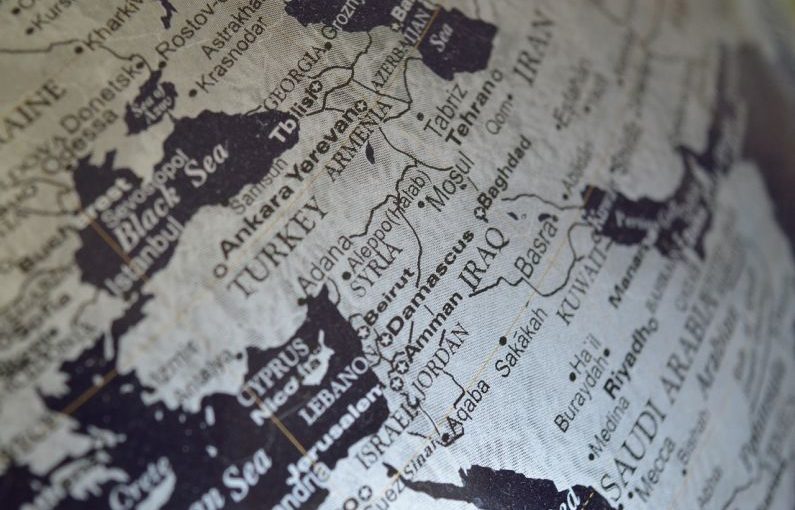In the complex web of international relations, geopolitics plays a pivotal role in shaping the dynamics between nations. Geopolitics, the study of how geography, politics, and power interplay in international affairs, is crucial for understanding the motives and actions of countries on the global stage. This article delves into the significance of geopolitics in international relations and why it remains a vital aspect in shaping the world order.
**The Influence of Geography**
Geography serves as the foundational element of geopolitics, as it dictates a nation’s strategic interests, resources, and vulnerabilities. The geographical location of a country can determine its access to vital resources such as waterways, energy reserves, and trade routes, all of which are essential for economic growth and national security. For instance, control over key chokepoints like the Strait of Hormuz or the Panama Canal can provide a significant geopolitical advantage to countries situated along these critical maritime routes. Moreover, proximity to potential adversaries or allies can shape a nation’s security policies and alliances, highlighting the intricate link between geography and geopolitics.
**Power Dynamics and International Relations**
Geopolitics also revolves around power dynamics among nations, where the distribution of power and influence on the global stage determines the strategic behavior of states. The concept of power in geopolitics extends beyond military might to include economic strength, technological advancements, and soft power capabilities such as cultural influence and diplomatic acumen. Superpowers like the United States, China, and Russia leverage their power resources to assert dominance in various regions and influence international outcomes in line with their national interests. Understanding these power dynamics is essential for predicting the actions of states and navigating the complex web of international relations.
**Resource Competition and Security Concerns**
Resource competition is a central theme in geopolitics, as nations vie for control over scarce resources such as oil, gas, minerals, and water. The quest for energy security drives countries to form strategic partnerships, engage in resource extraction activities, and secure supply chains to meet their domestic needs. Furthermore, the nexus between resources, territory, and security often leads to conflicts and geopolitical tensions, as seen in disputes over maritime boundaries, territorial claims, and natural resource exploitation. Geopolitical considerations shape a country’s security policies, defense strategies, and foreign relations to safeguard its access to critical resources and protect its national interests.
**Strategic Alliances and Diplomatic Maneuvering**
Geopolitics influences the formation of strategic alliances and diplomatic maneuvering among nations seeking to advance their interests and counter perceived threats. Alliances are forged based on shared strategic objectives, mutual security concerns, and geopolitical calculations to enhance collective security and leverage combined capabilities against common adversaries. Diplomatic negotiations, summits, and multilateral forums serve as arenas for countries to engage in dialogue, resolve disputes, and shape international norms and regulations. Geopolitical considerations underpin the intricate dance of diplomacy, as states seek to balance power relations, safeguard their interests, and project influence on the global stage.
**Navigating a Complex Global Landscape**
In a rapidly evolving global landscape characterized by geopolitical rivalries, economic interdependence, and transnational challenges, understanding the intricacies of geopolitics is essential for policymakers, analysts, and diplomats alike. Geopolitics provides a lens through which to interpret the actions of states, anticipate emerging trends, and formulate effective strategies to navigate the complexities of international relations. By recognizing the significance of geography, power dynamics, resource competition, and strategic alliances, countries can better position themselves to address geopolitical challenges, seize opportunities, and shape the course of world affairs.
**In Summary**
Geopolitics remains a cornerstone of international relations, shaping the behavior of states, influencing strategic decision-making, and defining the contours of the global order. By delving into the interplay of geography, power dynamics, resource competition, and strategic alliances, nations can gain insights into the motivations and actions of actors on the world stage. As geopolitics continues to drive international affairs, a nuanced understanding of its complexities is paramount for navigating the intricate web of relationships, interests, and conflicts that define the contemporary geopolitical landscape.





